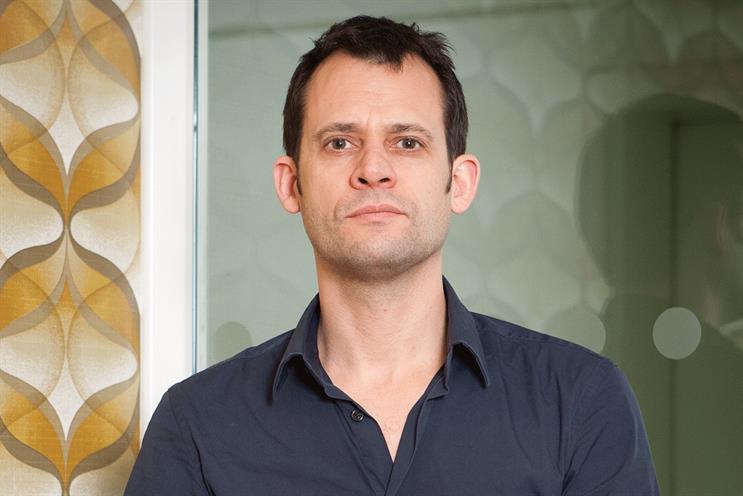
Three other leading planners give their views on Mawdsley's piece, which was published in ±±ľ©Čüłµpk10 today.
Richard Huntingdon, director of strategy, Saatchi & Saatchi
Despite its reputation, strategy isn’t actually a synonym for being "clever" or "complicated", indeed a properly good strategist would never use words like synonym.
Strategy simply means a clear, workable approach to solving a problem. As such it was never a particularly smart idea to separate it from the creative part of the agency’s activities and create the relay race Craig describes.
So it’s really not negotiable that strategy should be owned by everyone in the agency and be present at every stage in the process. After all, architects don’t bin the plan the minute the pile drivers arrive on site.
That said I am still a believer in having someone to lead the strategic charge, to have the courage of their convictions and establish a starting point for the agency’s work.
Especially when the job at hand is to sketch out a new future for a brand. Great strategists have an almost instinctive feel for the possibilities of a brand and the ability to translate this into a compelling vision for client and agency alike.
And I for one am not about to discourage this in the name of collaboration, since there is only really one agenda for our community at the moment and that is better work, more often for more brands.
 Alison Hoad, vice-chairman, RKCR/Y&R
Alison Hoad, vice-chairman, RKCR/Y&R
Abraham Lincoln famously said "the only way to predict your future is to create it" and it’s true that the future role for strategy in the communications business is for us strategists to create.
The strategists who shine this year will be those who, like great improv actors or musicians, have put in the hours of work necessary to internalise their craft to the extent that it appears to flow out of them intuitively.
2015 will be the year that planning, along with the rest of the agency team, needs to adopt a "newsroom mentality", coming together daily to shape the conversation between brands and their users in real time.
At RKCR Y&R we have long believed that a good idea can come from anywhere and this year that principle will apply as much to ideas that originate from conversations between a brand’s users, as to ideas that originate from conversations between clients and agency team members.
Those we previously referred to as "consumers" must from now on be thought of as our "collaborators".
We will all need to think increasingly in terms of participatory brand platforms, engagement and dialogue, rather than one-way communications or messaging.
 Andy Nairn, founding partner, Lucky Generals
Andy Nairn, founding partner, Lucky Generals
When I was growing up, one of the top telly shows was something called The Six Million Dollar Man. Anybody under 30 (ok, 40) might need to consult YouTube at this point.
But the basic construct was that an American astronaut had suffered a terrible crash, only to be saved by some "bionic" whizzery (eyes with a zoom function and night-vision, legs that allowed him to run at 90mph, arms with the strength of a bulldozer, etc).
In the 70s, every school kid could recite the opening voiceover, "We can rebuild him. We have the technology. We can make him better than he was. Better… faster… stronger." And in 2015, I’d argue that every planner should heed the same wise words.
Because, as Craig says, we have the chance to rebuild our discipline this year and not only save it from obsolescence but make it more exciting than ever. But only if we work better, faster, stronger than ever before.
"Better", because we need to recalibrate our level of ambition. At its best, planning can help shape the world, not just reflect it (as it often seems content to do, these days).
We need more of this kind of thinking – ideas that impact on popular culture, lead to a step-change in commercial performance and promote a sustainable future. This, in turn, will increasingly mean expanding our interest beyond communications, to encompass product, pricing, distribution and so on.
"Faster", because as Craig says, we need to loosen up the strategic process (I’m also a big fan of getting to ideas quicker and abandoning the old-fashioned relay race).
In fact, I’d take the argument one step further, and contend that we need to embrace "tactics" more wholeheartedly – this has long been a dirty word in our industry, whereas in other strategic fields (such as warfare, sport or politics) quick thinkers are positively lauded.
"Stronger", because brands need a robust point of view now more than ever – and planners can help drive such opinions into the thinking, long before an execution ever sees the light of day. I’ve never understood the old insult that "your strategy’s showing":
I propose that in 2015 we should make our strategies stick out like sore thumbs, as long as they’re good ones (see above).
Finally, if I were to torture my metaphor further (that’s one planning habit that will never go out of fashion), I’d also pick out the role of technology in all this. The Six Million Dollar Man wasn’t just a robot – he was a perfect blend of human and machine.
It strikes me that too many planners currently fall into one or other camp – either fanatical disciples of Big Data that couldn’t recognise an insight if it smacked them in the database, or highly intuitive types who have great creative vision but are blind when it comes to numbers.
In summary, the planners of the future are going to be masters of technology, not slaves to it – understanding of human quirks without being limited by existing behaviours. Biased to action. Better. Faster. Stronger. Bring on the age of The Six Million Dollar Planner.*
*Please do not take this sum literally, if you’re applying for a job at Lucky Generals this year.


.jpg)


.jpg)